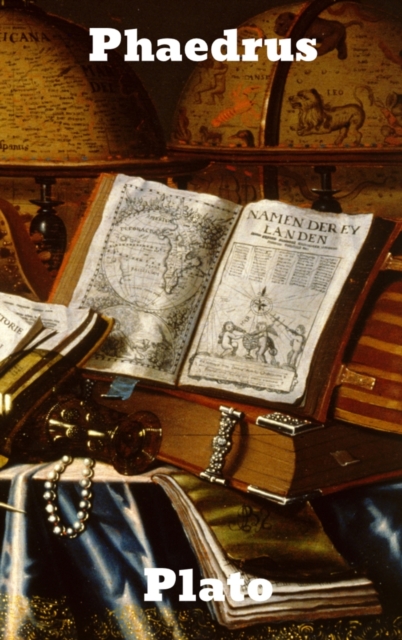
Phaedrus Hardback
by Plato
Hardback
Description
The Phaedrus is closely connected with the Symposium, and may be regarded either as introducing or following it. The two Dialogues together contain the whole philosophy of Plato on the nature of love, which in the Republic and in the later writings of Plato is only introduced playfully or as a figure of speech. But in the Phaedrus and Symposium love and philosophy join hands, and one is an aspect of the other. Translated by Benjamin Jowett.
The Phaedrus (/ˈfiËdrÉ™s/; Greek: Φαιδρος, translit. Phaidros), written by Plato, is a dialogue between Plato's protagonist, Socrates, and Phaedrus, an interlocutor in several dialogues. The Phaedrus was presumably composed around 370 BC, about the same time as Plato's Republic and Symposium.[1] Although ostensibly about the topic of love, the discussion in the dialogue revolves around the art of rhetoric and how it should be practiced, and dwells on subjects as diverse as metempsychosis (the Greek tradition of reincarnation) and erotic love.
Socrates runs into Phaedrus on the outskirts of Athens. Phaedrus has just come from the home of Epicrates of Athens, where Lysias, son of Cephalus, has given a speech on love. Socrates, stating that he is "sick with passion for hearing speeches",[Note 1] walks into the countryside with Phaedrus hoping that Phaedrus will repeat the speech. They sit by a stream under a plane tree and a chaste tree, and the rest of the dialogue consists of oration and discussion.
The dialogue, somewhat unusually, does not set itself as a re-telling of the day's events. The dialogue is given unmediated, in the direct words of Socrates and Phaedrus, without other interlocutors to introduce the story or give it to us; it comes first hand, as if we are witnessing the events themselves. This is in contrast to such dialogues as the Symposium, in which Plato sets up multiple layers between the day's events and our hearing of it, explicitly giving us an incomplete, fifth-hand account.
Information
-
Item not Available
- Format:Hardback
- Pages:116 pages
- Publisher:Binker North
- Publication Date:03/03/2020
- Category:
- ISBN:9781774414194
Other Formats
- Paperback / softback from £4.99
- Hardback from £12.19
- PDF from £4.87
- EPUB from £2.69
Information
-
Item not Available
- Format:Hardback
- Pages:116 pages
- Publisher:Binker North
- Publication Date:03/03/2020
- Category:
- ISBN:9781774414194






